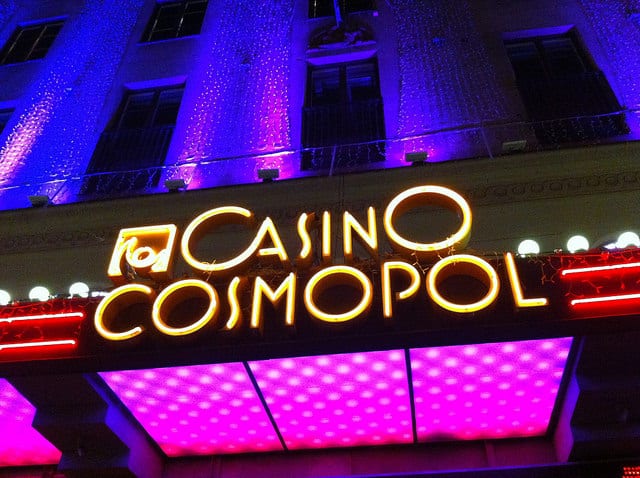Casino Cosmopol fined over money laundering failures

Swedish regulator Lotteriinspektionen has fined Sveska Spel's bricks-and-mortar gaming business Casino Cosmopol SEK8m (£688,300/€780,200/$880,400) for failing to comply with licence requirements for money laundering and terrorist financing.
The regulator found a number of serious and systematic deficiencies during an investigation of the land-based casino chain, which operates four venues across Sweden.
In its ruling, the Lotteriinspektionen said Casino Cosmopol may have been used for money laundering activities. It identified shortcomings across a number of areas over a period of seven months from January 1 to July 31, 2018.
The regulator, which is expected to announce the first licensees for the re-regulated Swedish market this week, said Casino Cosmopol must now amend its measures to comply with the points set out in its ruling. These changes must then be added to its licence application to ensure the company complies with money laundering rules in Sweden.
The regulator cited a number of examples where customers were failed by the company, including in relation to risk-based routines, where a player spent SEK99,000 on slot machines in a single evening. The casino did not record these transactions and could only present the amounts to the regulator after reviewing security camera footage.
Although Casino Cosmopol maintained that proper monitoring is in place, the regulator disagreed, saying that transactions at slot machines are not recorded or monitored and documented in a sufficiently systematic manner, ordering the company to improve its approach.
Shortcomings were also identified in terms of the risk assessment of customers, finding it in breach of Chapter 2 Section 3, of the Money Laundering Act.
Casino Cosmopol said that 99.7% of its customers are identified as low-risk under its current system, but the regulator questioned this, citing the case of one player who had lost SEK2.835m since 2016 and been reported to the Finance Department for suspected money laundering three times in 2016-17.
The customer in question was classed as low-risk by Casino Cosmopol, which the regulator said was evidence of a flawed system. It added that the company’s current processes do not take into account a customer’s actions before they registered as a casino customer.
The regulator also highlighted several cases of insufficient customer knowledge, including a failure to identify customers who were losing significant amounts of money. It was found to have breached Chapter 3 of the Money Laundering Act and terrorist financing rules when failing to impose additional measures on a particular customer who had lost SEK2.835m since 2016.
The regulator also noted that the current transactions systems in place at the casino are not compatible with the Money Laundering Act, and outlined its concerns about a lack of documentation. For example, casinos are required to document all business relationship or single transactions of €2,000 or more, but Casino Cosmopol failed to do so with 153 visitors that met this criteria.
Last week, Svenska Spel announced details of a new joint campaign with senior police officials and sporting administrators, aimed at neutralising a perceived raised risk of match-fixing following re-regulation.
In September, Svenska Spel also named Scarlett Roa as its new sustainability manager with responsibility for matters such as business ethics and anti-corruption issues.
Image: Per-Olof Forsberg
